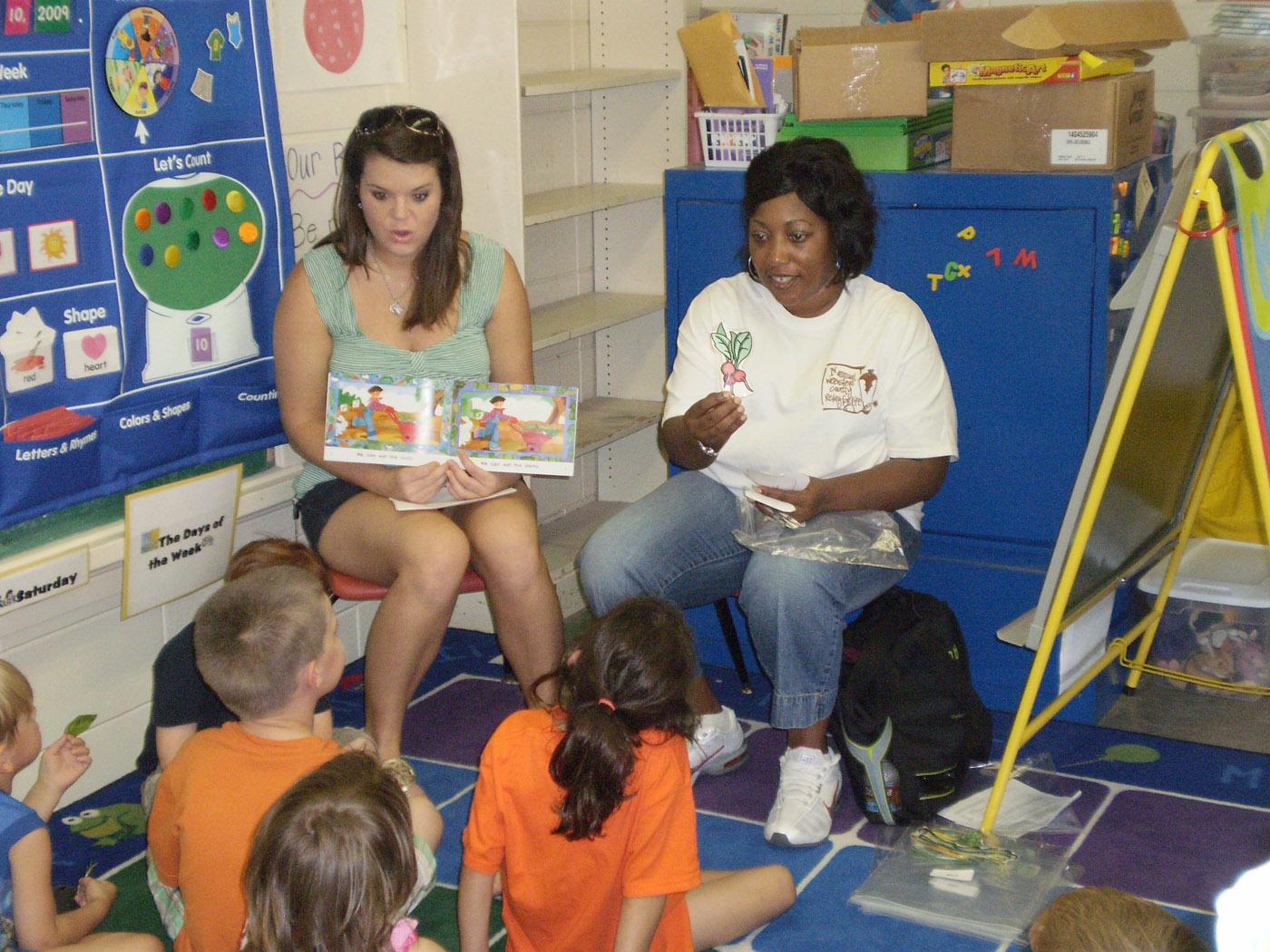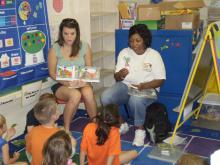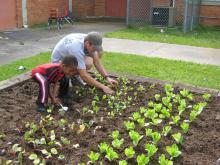Information Possibly Outdated
The information presented on this page was originally released on October 1, 2009. It may not be outdated, but please search our site for more current information. If you plan to quote or reference this information in a publication, please check with the Extension specialist or author before proceeding.
Gardening program teaches healthy habits
By Karen Templeton
MSU Ag Communications
MISSISSIPPI STATE – A Mississippi State University program is doing its part to address rising childhood obesity rates by educating young children about healthy living, aiming to stop obesity before it starts.
The Garden-Based Learning Program for Preschoolers began in January at Emerson Family School in Starkville. It is a pilot project developed by Chiquita Briley, Mike Hall, Diane Tidwell and Brian Trader in MSU’s departments of Food Science, Nutrition and Health Promotion and Plant and Soil Sciences to teach preschoolers ages 3 to 5 about nutrition, health, gardening and physical activity.
The goal of the project is to reduce the incidence of childhood obesity by introducing children, parents and educators to healthy food options and physical activity.
“When you ask a young child where food comes from, they usually answer, ‘the store,’” said Brian Trader, assistant professor of plant and soil sciences. “The gardening component of the program helps teach kids about where their food really comes from.”
Early in the year, children were each given their own packet of seeds to plant in one of the three gardens at Emerson. They helped maintain the gardens and learned about the different flowers, herbs and vegetables as they watched the plants grow.
“We introduced the preschoolers to vegetables to help them learn about eating fresh, nutritious foods, and the herbs are used to introduce them to different flavors used in cooking,” Trader said. “In the flower garden, we grow sunflowers, butterfly bushes and other plants that attract interesting insects and hummingbirds. The experience in that garden helps them interact with nature and learn more about the environment.”
Every two weeks, the children enjoy a tasting session. They have been introduced to fruits and vegetables such as beets, oranges, melons, cucumbers, summer squash, potatoes, romaine lettuce and Swiss chard.
Chiquita Briley, assistant professor of food science, nutrition and health promotion, and senior-level undergraduate students use age-appropriate techniques to help the children understand the importance of healthy eating.
“The lessons are very visual. The children remember more when you introduce the color, shape and size of the fruit or vegetable,” Briley said. “The lessons they learned previously are reinforced during the next session. They seem to remember a lot of what they’ve learned every time we review previous material, and they can easily grasp new concepts.”
Making trips to the school gardens helps the children stay active and learn the importance of being outside in the fresh air, but there are more activities that help get them moving.
“We choose kid-friendly songs and games such as the ‘Hokey Pokey’ and ‘Farmer in the Dell’ to encourage physical activity,” said Diane Tidwell, associate professor in the MSU Department of Food Science, Nutrition and Health Promotion. “They learn about the importance of physical activity and increasing their heart rates while having fun.”
The children are not the only ones learning -- teachers and parents also benefit from the program.
“Children bring lessons home to their parents. When they have the terminology, they can ask for healthy alternatives for snacks and meals,” Briley said. “We are in the process of developing a parent component for the program to help them become more involved in what their children are learning.”
Trader said the children are becoming more aware of the botanical world and are expressing interest in gardening with their families.
“After getting some exposure in the garden, students start noticing gardens outside the school environment,” Trader said. “We’ve had students who now talk about helping in their grandmothers’ gardens. It is really nice to see how these lessons carry over.”
The staff at Emerson has embraced the lessons taught in the program and plans to continue it after the pilot project comes to an end.
“This program has been a real plus for us because the kids enjoy it and they have all learned so much,” said Susan Fulgham, preschool coordinator at Emerson. “The MSU faculty and students involved in the project have provided us with the information and tools to incorporate the program’s lessons into our preschoolers’ regular curriculum.”
Trader said the goal is to expand the program to more schools across the state.
“We applied for a grant that will give us the resources to start new programs,” Trader said. “The more opportunities we have to increase children’s understanding of healthy lifestyles, the better chance we have at curbing obesity and unhealthy behaviors.”
Contact: Dr. Brian Trader, (662) 325-7287




